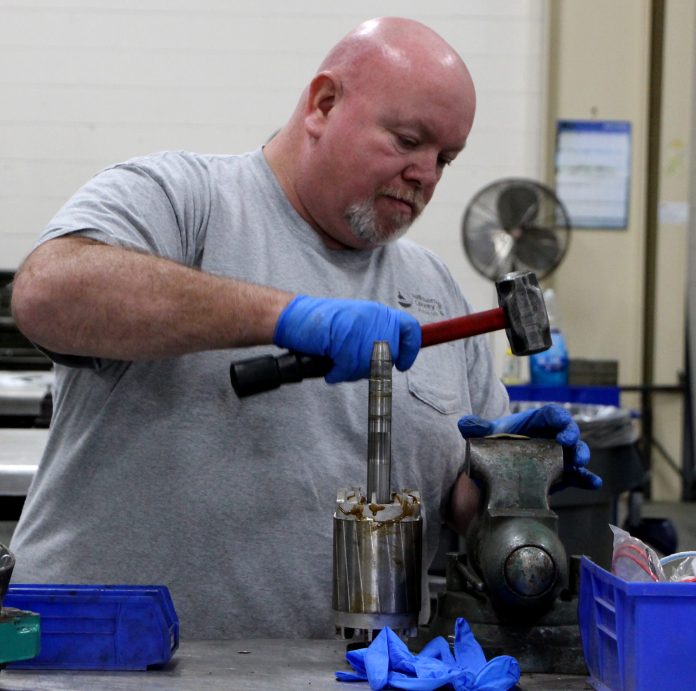
By Brad Stager
Competition for workers skilled in technical and industrial trades has Hillsborough County officials concerned about the ability to operate and support the infrastructure that delivers essential utility services, such as treating and transmitting the local water supply as well as building and maintaining roads.
To help maintain a workforce that can keep the water safely flowing through 5,000 miles of pipes and traffic moving on busy roads, the county is partnering with Hillsborough Community College and Hillsborough County Public Schools, as well as private sector organizations, to train workers in skills such as operating and maintaining waste and potable water systems, geographic information systems and heavy industrial equipment.
Jobs can range from repairing pumps and electrical motors to operating remote cameras that survey hard-to-see infrastructure such as water pipes.
The entry and mid-level technology positions represent a sector of the job market that generates living-wage jobs without needing a four-year college degree, according to Ken Jones, the county’s manager of workforce development and community stabilization.
Jones said a competitive recruiting market is creating a need to do more to develop workers with needed skills and attract them to the county’s workforce.
“There’s a high demand for those types of skills and competencies out in the public as well as private sector.”
Jones added that the new program is needed because of lack of career training opportunities for residents who want to learn a trade and qualify for county utilities positions, some of which are vacant because many longtime employees are retiring.
Besides a steady paycheck, there’s another factor that matters to Nathan Wade, who has made a career out of utility maintenance operations.
“We get a chance to serve the residents of Hillsborough County and provide a service they need,” he said.
The board of county commissioners approved $500,000 for the program, an expenditure that could help conserve tax dollars that would be spent on repair contracts with outside vendors.
“It saves us a lot of time and money to be able to do those internal repairs,” said Jones.
The training program for new utility workers is currently under development with a starting date to be sometime in 2022.


